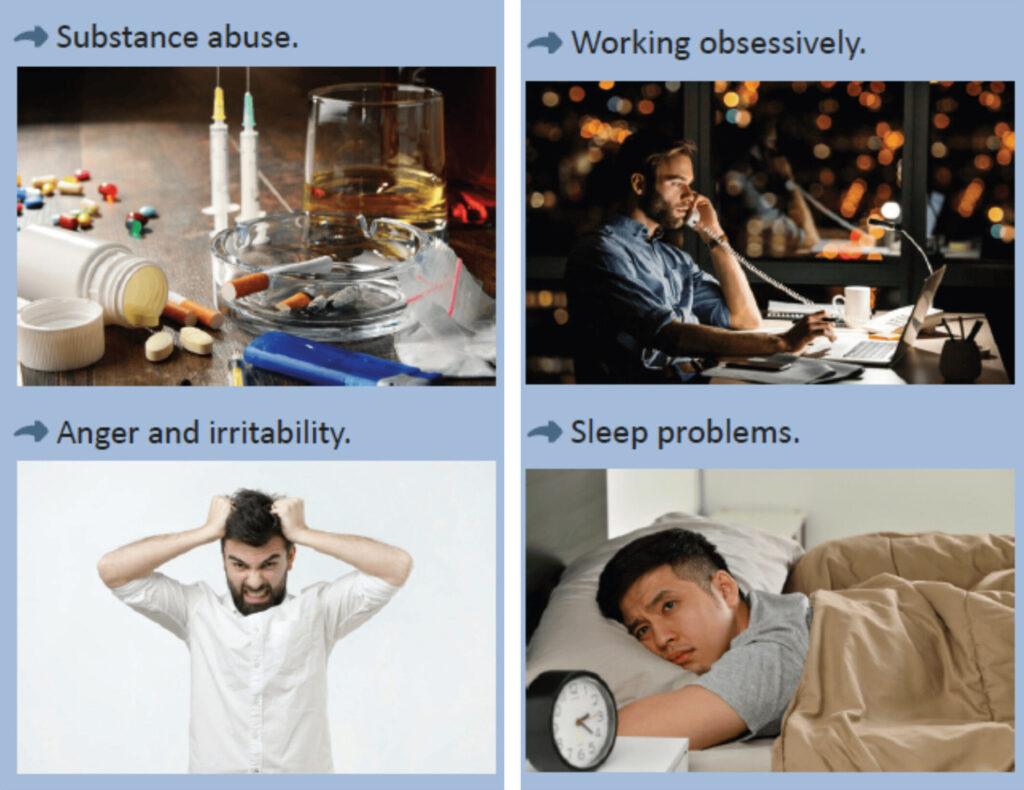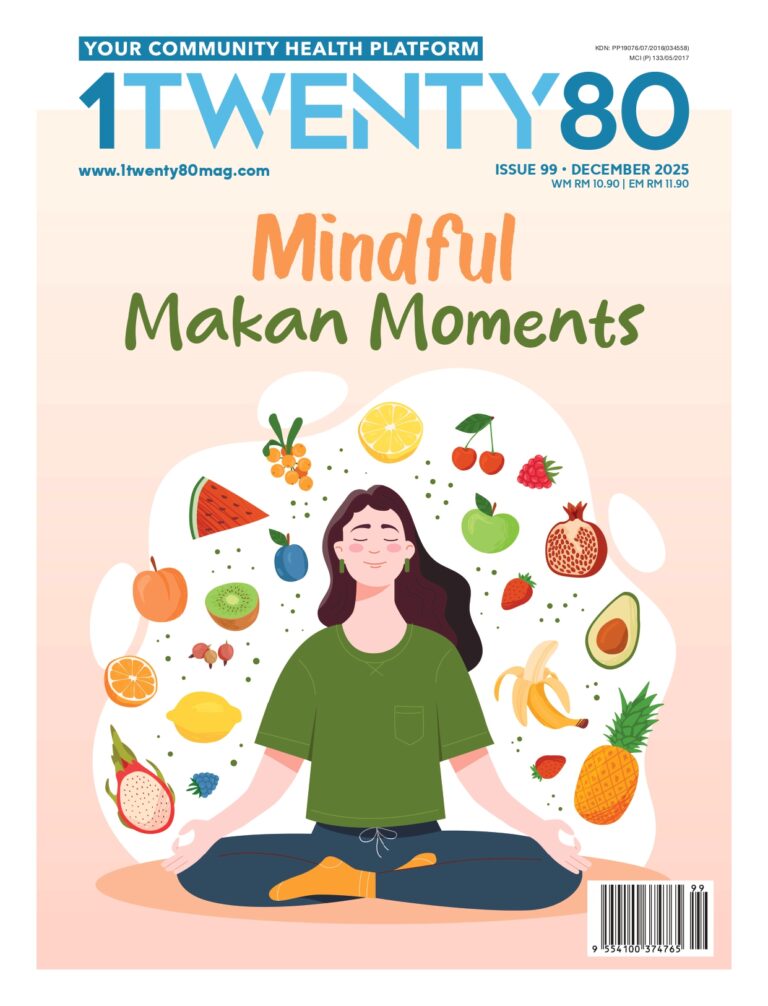In modern times, mental health is no longer a swept-under-the rug, forbidden subject as it once was. Globally. There are ongoing preventive initiatives as well as awareness and educational activities conducted by various organisations.
However, we are still a long way from celebrating significant progress in addressing mental health issues.
The National Suicide Registry of Malaysia recorded an increase in male suicides in 2019. It found that while Malaysian women reported higher levels of depression and anxiety, men were found to be three times more likely to commit suicide.
A World Health Organisation (WHO) report in 2020 noted that, within the first year of the Covid-19 pandemic, the global prevalence of depression and anxiety increased by 25 percent.
In a statement released by the Royal Malaysia Police (PDRM), our nation recorded an increase of 81 percent in suicide cases between 2020 and 2021.
In 2022, the Department of Statistics Malaysia (DOSM) revealed that the life expectancy for men in Malaysia had dropped to 70.8 years.
Despite numerous efforts, why are we still facing these bone-chilling numbers? Why is it important to emphasise men’s mental health? We spoke to Dr Roland Victor, Medical Doctor at KL Sky Clinic cum influencer and entrepreneur to shed some light on men’s role in mental health conversations.

1Twenty80: Why is it tougher for men to open up about their feelings than women? Do hormones or evolution play a role?
Dr Roland Victor: I would say that evolution and hormones are both important. When we look at evolution, men were active hunter-gatherers. They ventured outside their homes to hunt, fish, and forage for wild vegetation. In order to defend their families from harm, they had to fight off predators. When the competition was fierce, the weak often could not catch up.
Women, on the other hand, are nurturers by nature. In the absence of their male counterparts, women stayed indoors and focused on homemaking and taking care of the group. Women also frequently socialised together. Their motherly instincts are greatly influenced by their oestrogen levels.
On the modern battlefield, men are in a constant clash for successful careers, happy relationships, and families. The stakes are higher, no thanks to societal expectations and various factors that further exacerbate the conditions. Hence, the male ego of denying defeat could be the very reason why men are reluctant to shed a tear or expose their weakness. It’s the survival of the fittest.
Telling men to “Man Up”, “Don’t Act Like A Girl”, and “Be More Macho” deprives men of the opportunity to feel emotions, to take things easy and to put themselves first.

1Twenty80: How does toxic masculinity contribute to men’s mental health?
Dr Roland: What we need to understand is that men are designed to provide. It’s built into our instinct to do things the hard way, and that means we are in constant competition with other men.
That’s why we tend to prove our worth through hard work. It’s a necessary masculine trait to protect. This includes safekeeping the females, offspring, nation and so on.
Toxic masculinity opposes mental and physical health treatment, even when injured or emotionally struggling. Thus, ignoring the pain and pushing oneself to work harder and move forward is impractical and unhealthy.
Telling men to “man up”, “don’t act like a girl”, and “be more macho” deprives men of the opportunity to feel emotions, to take things easy and to put themselves first.

1Twenty80: What are some of the typical stressors in men?
Dr Roland: One of the greatest stressors for men is living up to society’s expectations and gaining acceptance from that very society. Consider the criteria a woman seeks in a life partner as an example. Most would expect a man to have a successful career and a lot of money. A man should also own assets, mainly a car and a house.
That, however, does not guarantee a romantic partner’s agreement to marriage. A man is expected to fit male beauty standards like being tall and having a deep voice. Some of these expectations may vary depending on culture, family background and socioeconomic status.
As a result, trying to accommodate these expectations into one’s daily life can be a significant challenge for anyone. It is more difficult for men since we tend to hide our vulnerabilities and failings. Without meeting these standards, men will unfortunately lose society’s acceptance.
Signs of Mental Health Issues in Men
While many signs and symptoms are universal, some are more common in men than they are in women. Here are some things you should look out for in a male friend or family member:

1Twenty80: What are some stereotypical assumptions about men?
Dr Roland: First and foremost, the stereotypical assumption about men is their physical appearance. Men are often expected to be bigger and mightier by nature. These characteristics are seen as parallel to strength.

1Twenty80: How can men take the first step in dealing with their mental health struggles?
Dr Roland: Men have to start interacting again with each other. The world’s schedule today is going to work, returning home, taking care of the kids and doing it all over again. We hardly meet friends in social settings like gyms or even local eateries.
Men need to talk to men because only they can fully understand the nuances of being male. I believe that by interacting openly with each other and not viewing the other man as a competition at work or in a relationship, men will be able to relieve some amount of stress via healthy avenues.

What To Do If You Or Someone You Love Needs Help?
Firstly, acknowledge the problem. Next, try out these methods:
- Relaxation techniques like breathing exercises and meditations to help you feel calmer and more relaxed if you’re struggling with high levels of anxiety.
- Get out and actively exercise by brisk walking, playing badminton or futsal to help release positive endorphins.
- Cut down on perilous habits like drinking and smoking.
- Stay social with family members, work buddies and like-minded peers.
- Seek professional treatment by reaching out to licensed experts or call
- Malaysian Mental Health Association: 03-2780 6803
- Befrienders Kuala Lumpur: 03-7627 2929
1Twenty80: Why is it important for men to help men tackle mental health issues?
Dr Roland: Men are less emotional and constrictive, basically. It’s easy for men to express their stress with other male partners, as they are able to discuss their issues in a more logical way rather than being emotional about the issue.
1Twenty80: How can a father teach his son about the right approaches to mental health?
Dr Roland: Fathers need to catch up to the era of their sons in order to talk to them. I think it’s important for fathers to not compare their past struggles with their sons’ current ordeals.
While there could be some similarities in both their experiences, it’s essential that both father and son have a mutual understanding of each other. That is how you work towards bridging generational gaps and also have fruitful dialogues about your shared views, opinions and experiences. So, learn the language of the present.

1Twenty80: As a man, what would you like to share with other men?
Dr Roland: From what I see, some men have a materialistic mindset. They equate success with possessing material things. This is most definitely a distraction that’s blinding them to other forms of success. Building your physical strength, developing your core beliefs and other aspects of your life are far more worthy forms of success. I hope that men will focus more on these areas.
Building your physical strength, developing your core beliefs and other aspects of your life are far more worthy forms of success.
Sources: Department of Statistics Malaysia, Priory Health UK, National Suicide Registry Malaysia, World Health Organisation, Royal Malaysia Police, Medical News Today, Harvard Business Review











